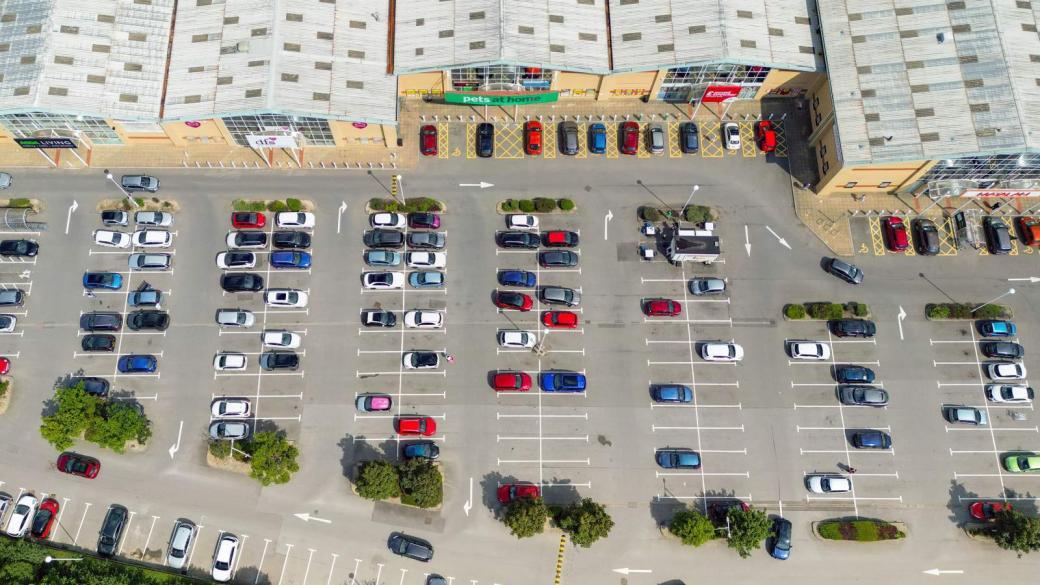Retail parks featuring hotels: Is this trend also coming to Bulgaria?
The surfaces of these commercial facilities in the country are increasing at a significantly faster rate compared to the average level for Central and Eastern Europe

© ECONOMIC.BG / Depositphotos
Retail parks are experiencing extremely rapid growth both in Bulgaria and in the entire region of Central and Eastern Europe. By the end of 2023, compared to 2022, their volume in the region has increased by nearly 11%, with their total surface area reaching 8.35 million square meters.
Although these surfaces are a relatively small part of the total volume - 511,000 sq. m - their growth in the Bulgarian market is significantly above the average for the region. In 2023, operating retail parks have increased their area by more than 50 percent, according to data from Cushman&Wakefield Forton, a consulting company for commercial real estate.
From the analysis, it is clear that the concept of what retail parks are is completely changing. In some regions of Europe, there are even commercial parks featuring cinemas, hotels and shared offices.
Is the retail park concept also changing in Bulgaria?
Economic.bg sought an answer to this question from Georgi Muhovski, deputy manager of the "Retail Space" department at Cushman&Wakefield Forton.
We certainly follow the trends, so we expect them to come here as well. But whether it will be in the same form or in a different one, I cannot predict. And I don't believe anyone else could," he says.
For the time being in Bulgaria, the retail park still sticks to classic actors, such as affordable fashion and shoe stores, supermarkets, electronics, furniture, DIY stores, and more recently eating establishments.
Very recently, there has been talk of multi-story retail parks - a trend that is well-known abroad but is starting to make an appearance in Bulgaria as well.
We are already observing such projects not only in Sofia but also in several other places in the country. Whether they will be successful, however - time will tell," says Muhovski.
According to data from Cushman&Wakefield, the average density of retail parks in Central and Eastern Europe is 92 square meters per 1,000 inhabitants. Active investments in the sector are rapidly changing these indicators, especially in rapidly developing markets, such as the Bulgarian one.
At the end of 2023, the density of retail parks in Bulgaria was 75 square meters per 1,000 inhabitants. That country is ahead of Poland, where this indicator is 66 square meters per 1,000 inhabitants, but still remains among the countries with the lowest density. The leader is Hungary, where this indicator was 172 sq. m per 1,000 inhabitants, and Romania - 94 sq. m per 1,000 inhabitants.
Online retail trade
After the rapid expansion of online shopping in 2021 (pandemic year), when the sector recorded real growth of 43 percent in Bulgaria, in 2022 this indicator decreased to 12.4%, as per the report. In 2023, it dropped to a single-digit number – 8.3 percent after deducting inflation. At the same time, physical sales turnover in malls and retail parks remains stable.
After the rapid growth of online sales, the market has visibly sobered up and the hybrid business models combining online and physical objects have proven to be the most sustainable in recent years," pointed out Georgi Muhovski.
According to him, a deterrent factor for the rapid growth of online commerce is partly logistics, as many brands still experience problems with centers for processing and receiving shipments, as well as with “last mile logistics”. Many of the major international brands have successfully combined brick-and-mortar locations and online shopping through click-and-collect formats (picking the shipments ordered from the website at the store) and providing exchange and return options at their physical stores.
According to Georgi Muhovski, it is the effective collaboration between offline and online shopping, as well as the digitalization in the sector, that will play a decisive role in the future of the retail market.
Translated by Tzvetozar Vincent Iolov

 Gabriela Mahlelieva
Gabriela Mahlelieva